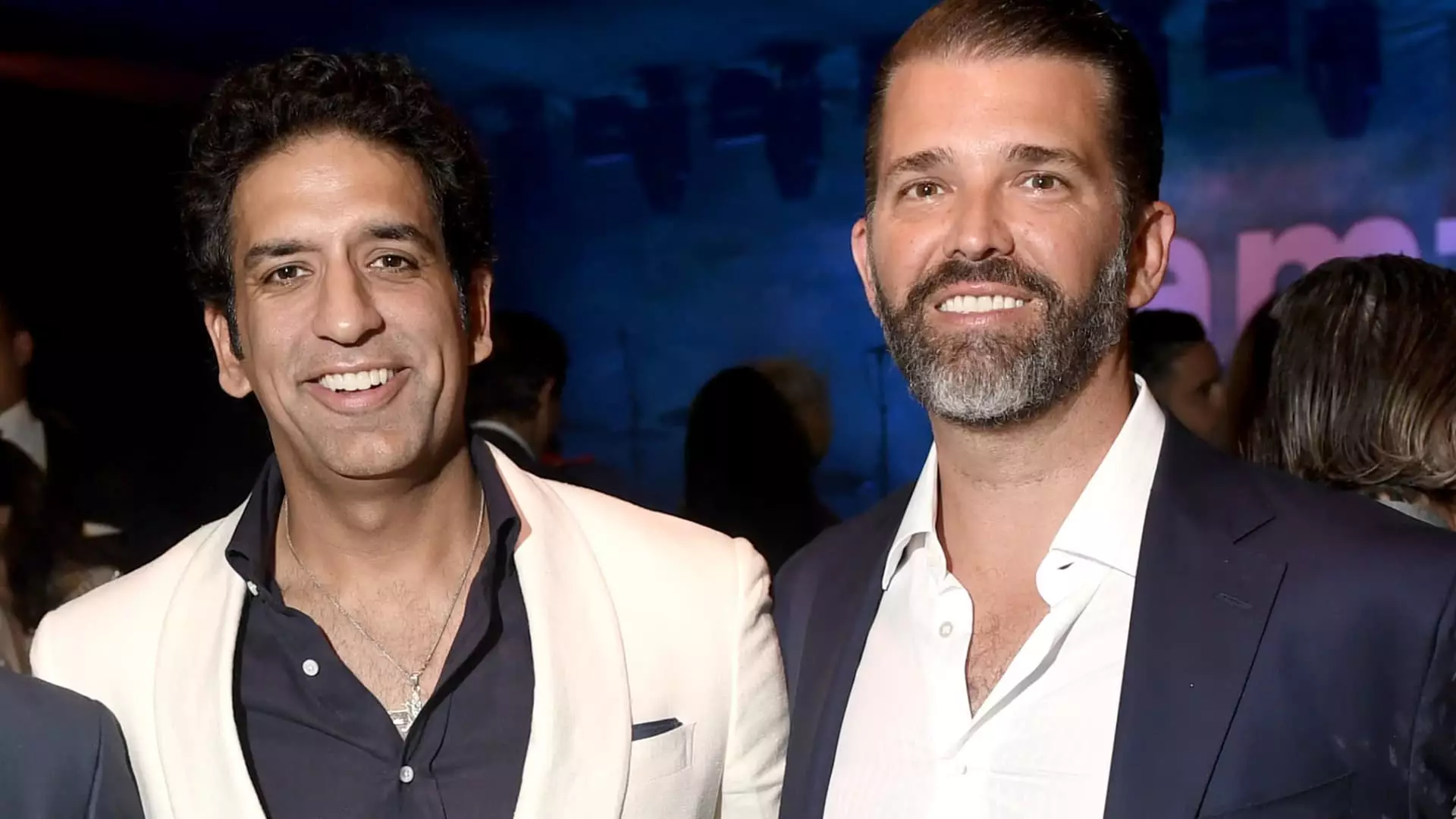In a time where socio-economic divides are more pronounced than ever, the launch of a $500,000 private membership club in Washington, D.C., spearheaded by Donald Trump Jr., raises some serious ethical questions. Named “Executive Branch,” this exclusive enclave for the wealthy and politically connected already boasts a waiting list, despite its staggering entry fee. As the political climate varies from unfavorable to outright toxic, such initiatives could further deepen the chasms that separate the elite from everyday citizens. Rather than fostering inclusivity and collaboration for societal betterment, the Executive Branch appears to be yet another example of the alarming trend where wealth and power define access and opportunity.
A Vault of Powerbrokers
The founding roster of Executive Branch reads like a “Who’s Who” of political and corporate power, featuring names from the Trump administration, top CEOs, and influential policy experts. In an era where the average American grapples with economic insecurity, the emergence of such an elitist space can hardly be considered a grand political or social achievement. It’s alarming to see high-ranking members of government mingling with billionaires in a space that will inevitably influence policy and perceptions. Torn between the allure of political clout and ethical responsibility, this club serves as a reminder that the political landscape is increasingly shaped by financial capability rather than merit or public service.
Upon its inception, Executive Branch held a launch event featuring significant political figures like Secretary of State Marco Rubio and Attorney General Pam Bondi, alongside tech titans like the Winklevoss twins and Chamath Palihapitiya. The swanky event reeked of privilege, leading one to question the implications for democratic accountability. While the founders claim to conduct stringent vetting processes to keep out media and unwanted lobbyists, who can really determine what qualifies as a “desirable” member? The entire endeavor feels like an exclusive club for the chosen few, equipped with an air of superiority that inherently discourages diverse viewpoints and voices.
The Comparison to Historic Elitism
To further drive home its exclusivity, Executive Branch chose a location in the Georgetown neighborhood, an area steeped in historical significance and luxury. The price tag also dwarfs other high-profile clubs; at over double the cost of well-known venues like the Aman Club, it’s clear that this isn’t just about social networking; it’s about making a statement about wealth and privilege. While membership fees for elite clubs typically hover between $4,000 to $10,000, Executive Branch suddenly elevates the concept of social mingling into the realm of decadence.
The implications of such an organization extend beyond its lavish amenities, suggesting a potential revival of backroom deals and quid pro quo politics. An exclusive club for the white-collar elite won’t improve public trust or democratic participation but will likely reinforce pervasive cynicism regarding governance. This phenomenon, reminiscent of the infamous Trump International Hotel, sums up the intersection of privilege and policy: is it a place for genuine discourse, or merely a breeding ground for further entrenchment of elitism?
The Dangers of Political Insulation
Exploring the ramifications of such elitism leads to an inevitable conclusion: the formation of exclusive social enclaves like Executive Branch may stunt meaningful political dialogue. Wealthy individuals, operating within insulated environments free from public scrutiny, can craft policies that often neglect the wellbeing of the average citizen. When political decisions become insulated from public interest, the fabric of democracy wears thin. Interactions that happen behind closed doors can easily tilt the scales of power further away from transparency, pushing the average voice into the shadows.
What’s chilling is the atmosphere of detachment that surrounds the club’s inception. In the current socio-political climate filled with divisive rhetoric, the establishment of a club summoning wealth and connections starkly contrasts with the genuine struggles faced by millions in America. A club that resembles the hallowed halls of power may inadvertently delegate larger societal reforms to a mere afterthought of the elite, perpetuating a cycle of disconnection from reality.
As we observe the effects of this growing schism, one can only hope for a political evolution that prioritizes inclusion over exclusion—dialogue over clandestine meetings—and ultimately reaffirms democracy’s foundational ideals.

